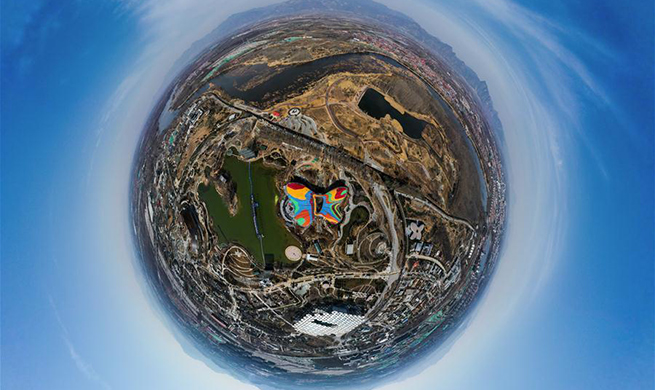STOCKHOLM, March 29 (Xinhua) -- Statistics published on Friday by the Swedish Meteorological and Hydrological Institute (SMHI) showed that the annual average temperature in Sweden is increasing almost twice as fast as the global average.
"This development is in line with what we can expect based on the climate scenarios that exist and calculations of how global warming can affect us, something we thus see happening today," says Erik Kjellstrom, professor of climatology at SMHI.
According to SMHI, the global annual average temperature has increased by 0.73 degrees compared to the pre-industrial benchmark. The modern time average is calculated using data from 1991-2018 and the pre-industrial time average is calculated using data from 1861-1890.
Using the same periods for comparison, SMHI's measurements showed that Sweden's annual average temperature has increased by 1.7 degrees - more than twice as much as the global average.
In an interview with Swedish News SVT, Kjellstrom explained why temperatures are increasing faster in Sweden.
"Sweden lies near the Arctic and the snow and ice that we usually have during winters means that incoming solar radiation reflects back towards space. The snow cover insulates the ground and prevents the air above from being heated," Kjellstrom told SVT. "When we get less snow and ice, the ground and air are heated up more and the heating rate is faster than elsewhere."
"One might think that it doesn't sound like that much with half a degree here or there," Kjellstrom told SVT, "but the warming is associated with major changes in our climate with many often negative consequences for society and the natural environment."
To follow climate change in Sweden, SMHI annually updates a number of climate indicators. These climate indicators are based on SMHI's measurements around the country which in some places began in 1860, more than 150 years ago.
In Sweden, only two of the last thirty years have been colder than normal. 2018 was the eighth-hottest year since records began in 1860.
SMHI's report comes a day after the World Meteorological Organization published the WMO Statement on the state of the global climate in 2018.













